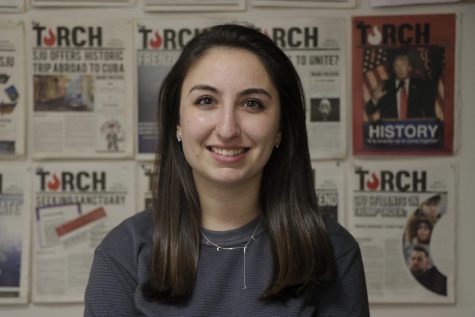Following recent events surrounding ride-sharing services and safety with college students, Denise Vencak, the executive director of Public Safety, emailed the University community on Friday, April 5 to address safety precautions while riding in vehicles like Uber and Lyft.
“With the rising popularity of app-based ride sharing services, it is important to remain vigilant in light of recent events with fake rideshare drivers,” the internal communication from Vencak said.
The internal refers to is the death of a 21-year-old University of South Carolina student Samantha Josephson who was killed on March 29 after she was seen on surveillance video entering a vehicle that was not her Uber. Her body was found with multiple sharp force injuries 14 hours later in a field about 90 miles away from the bar she was outside of, authorities said.
Vencak’s email to the community urges riders to check two details before beginning a trip: The driver and the car. She also advises:
- “Confirm the driver’s photo, name, the vehicle make/model and license plate number before entering a vehicle, and only request rides through the official app.
- Do not accept a ride from a driver you have not requested. Never get in a vehicle you have not requested and cannot verify just because they say they work for a ride sharing company. Always ask the driver the name of the person they are there to pick up. If they do not know your name, do not get in the vehicle.
- Plan the safest locations for pickup and drop off, watch for traffic and avoid getting out in a dangerous location.
- Travel with a friend, or let a friend know where you are going, how you plan to get there and when you expect to arrive. Many ridesharing services provide features within their applications that allow friends or family members to track your location. This will allow someone to know your location, as well as when you are expected to arrive at your destination. To use this feature on Uber, while en route, tap the ‘Share Status’ icon to share your location with trusted contacts. To use this feature on Lyft, tap ‘Share Route’ and choose a recipient from your contacts.”
Josephson’s death hit close to home at St. John’s, as an urban campus with students frequently using apps like Uber and Lyft to get places in the area. Junior Bre’Anna Grant said that although she has never had a negative experience with ride-sharing services, she exercises caution.
“I definitely check the licenses plates before getting into the car, let them know that’s it’s for me and say my name — take all the precautions,” Grant said. “When I’m in an uber/lyft in a city other than NYC, I’m on the phone with my mom and we have code words for situations.”
Jared Young, a senior, added that it is ride sharing companies and the riders’ responsibility for safety to be priority.
“Both need to be responsible and preventative rather than reactive, since being safe isn’t something you can put a price on, and it’s always worth the time to be cautious of what you’re getting yourself into,” Young said.
Uber released that in the coming weeks they will initiate steps to increase safety knowledge, including launching a Check Your Ride awareness campaign on social media, purchasing ads in college papers, promoting the in-app Safety Center to all riders in the U.S. and sending push notifications during pickup to remind riders of the Check Your Ride steps.
“Since 2017, we’ve been working with local law enforcement to educate the public about how to avoid fake rideshare drivers. Everyone at Uber is devastated to hear about this unspeakable crime, and our hearts are with Samantha Josephson’s family and loved ones,” Uber’s press release said. “We spoke with the University of South Carolina President and will be partnering with the university to raise awareness on college campuses nationwide about this incredibly important issue.”
“The issue of fake ride-hailing drivers is a growing concern in particular around college campuses. The Office of Public Safety encourages all members of the University community to use best practices when utilizing the services of app-based ride-hailing services,” University spokesperson Brian Browne said.
“The Office of Public Safety is one of many departments that speaks with students on a regular basis, including at new student orientation, about the importance of personal safety.”
Another safety concern along a similar wavelength has made its way onto the St. John’s campus; a trespasser asking students to join a Bible-study group. Brian Browne said the person is not associated with the University.
“On Monday, April 8 the Office of Public Safety received complaints of suspicious persons trying to recruit students to join an off-campus Bible study group,” Browne said. “After conducting an investigation the violators were identified as not being associated with the University and were trespassed from the campus.”
For more information on ride sharing safety and any Queens campus concerns, Public Safety can be reached at 718-990-6281.









